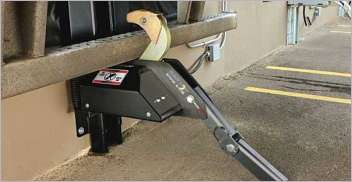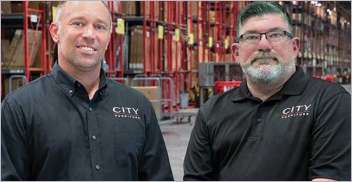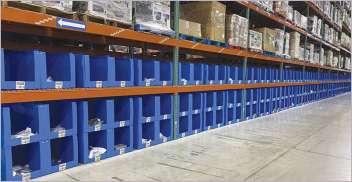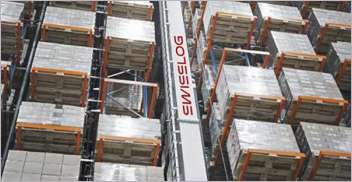EnerSys, a provider of stored energy solutions for industrial applications, has received approval of full integration for NexSys Thin Plate Pure Lead (TPPL) battery technology across all equipment from Hyster-Yale Group that is equipped with Hyster Power Cellect or Yale Power Key, Enersys announced today.
This approval from Hyster-Yale Group makes EnerSys the first and only provider to offer both virtually maintenance-free battery technologies compatible with Hyster Power Cellect and Yale Power Key - TPPL and Lithium-ion (Li-ion), the company added. Both Power Cellect and Yale Power Key simplify the transition to different battery types in an integrated fashion with truck communications and displays.
“Both EnerSys and Hyster-Yale Group constantly seek to improve customer operations by leveraging technology. The flexibility in power options provided by both Hyster Power Cellect and Yale Power Key, coupled with EnerSys’ broad array of battery technologies, now gives Fleet Managers more choices to help optimize productivity and reduce total cost of ownership – while also enhancing the operator experience,” said Ben Ruela, General Manager - OEM Sales, Motive Power Global at EnerSys. “Having our TPPL and lithium-ion technologies integrated with Hyster and Yale equipment affords our mutual customers the opportunity to ‘right size’ the power solutions required by their operation while virtually eliminating battery maintenance. No two operations are identical and only EnerSys enables fleets to truly optimize their equipment power with a broad span of choices.”
While electric material handling equipment was already typically designed for use with flooded lead acid batteries, the operational benefits from integrating advanced TPPL and Li-ion technologies manifests in three core categories, Enersys added:
- Productivity: Communication between Hyster and Yale equipment and EnerSys batteries enables reporting of battery data to operators via the factory-installed Battery Discharge Indicator (BDI) on the lift truck - helping ensure proper charging practices to optimize productivity along with service life of the equipment and battery. When equipped with optional Hyster Tracker™ or Yale Vision™ telemetry, managers can also conveniently monitor battery status and charging habits for TPPL and Li-ion in their respective online portals.
- Sustainability: Converting from liquid propane (LP) to electric-powered Hyster and Yale equipment, all EnerSys batteries reduce carbon dioxide emissions up to 14 tons per truck*. While TPPL and Li-ion technologies also eliminate watering - saving up to 660 gallons of water annually per battery versus traditional flooded lead acid, based on usage.
- Safety: Direct communication between battery and equipment via full integration also helps ensure features and warnings related to battery state-of-charge which help protect equipment and operators.
Fleets working with EnerSys also gain the advantage of combining power study data with proprietary EnSite modeling software to identify the optimum power system for their specific applications.







